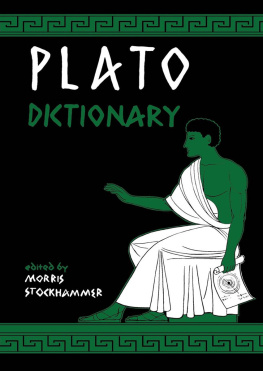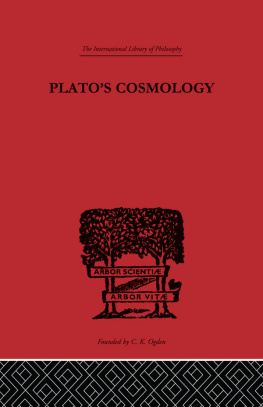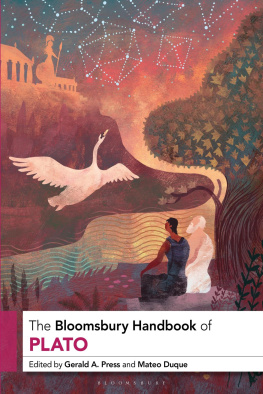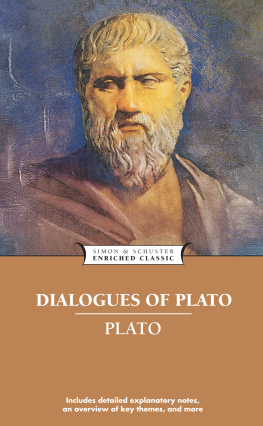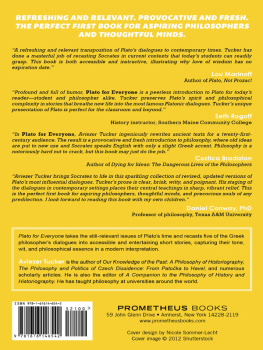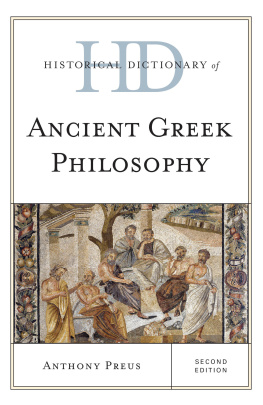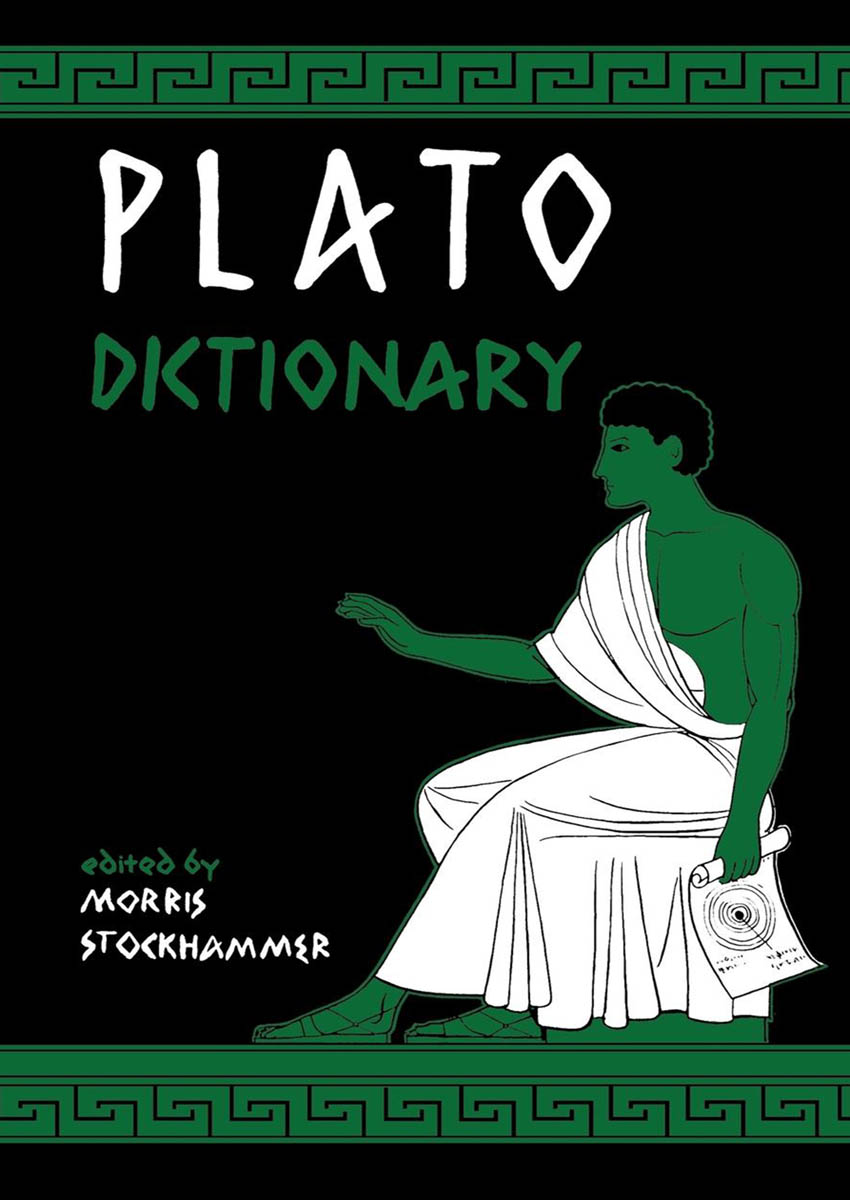A
Ability. You have already admitted that he who is false must have the ability to be false: you said that he who is unable to be false will not be false. Lesser Hippias, 367.
Above and Below. If a person were to go round the universe in a circle, he would often, when standing at the antipodes, speak of the same point as above and below; but to speak of the whole which is in the form of a globe as having one part above and another below is not like a sensible man. Timaeus, 63.
Absolute. There is an absolute beauty and an absolute good, and of other things to which the term many is applied there is an absolute; for they may be brought under a single idea, which is called the essence of each. Republic, VI, 507.
Tell me, whether there is or is not any absolute beauty or good or any other absolute existence? Cratylus, 439.
Those who see the many beautiful, and who yet neither see absolute beauty, nor can follow any guide who points the way thither; who see the many just, and not absolute justice, and the like such persons may be said to have concrete, but no abstract knowledge. Republic, VI, 479.
Abstention. They are willing to abstain from the pleasures of love for the sake of a victory in wrestling, running, and the like; and shall our young men be incapable of a similar endurance for the sake of a much nobler moral victory, which is the noblest of all? Will not the fear of impiety enable them to master that which inferior people have mastered? Laws, VIII, 840.
Abstract Art. I do not mean by the beauty of form such beauty as that of animals or pictures, which the many would suppose to be my meaning; but understand me to mean straight lines and circles, and the plane and solid figures which are formed out of them by turning lathes and rulers and measures of angles; for these I affirm to be not only relatively beautiful, like other works of art, but they are eternally and abstractly beautiful. Philebus, 51.
Abstraction. Such abstraction [thinking of the spiritual apart from the material] is the lifelong study of the soul. Phaedo, 80.
Abuse. The abuse of a thing brings discredit on its lawful use. Symposium, 182.
Accounting. He who transgresses the laws is to be called to account, which is a term used not only in your country, but also in many others. Protagoras, 326.
Accurate. To learn all these things accurately would be very tiresome. Euthyphro, 14.
Accusers. The hardest of all the names of my accusers I do not know and cannot tell. Apology, 18.
Acheron. In the opposite direction flows Acheron, which passes under the earth through desert places. Phaedo, 112.
Achilles. I cannot allow our citizens to believe that Achilles, the son of a goddess [Thetis] and of Leleus who was the gentlest of men and third in descent from Zeus, was so disordered in his wits as to have been at one time affected with overweening contempt of gods and men. Republic, III, 391.
Achilles was quite aware, for he had been told by his mother, that he might avoid death and return home, and live to a good old age, if he abstained from slaying Hector. Nevertheless he gave his life to revenge his lover Patroclus. Symposium, 180.
Acquisitive. Next follows the whole class of learning and cognition, together with trade, fighting, hunting; since none of these produces anything, but is only engaged in conquering by word and deed, or in preventing others from conquering, things which exist and have been already produced in each and all of these branches there appears to be an art which may be called acquisitive. Sophist, 219.
Acquittal. The law says that when a man is acquitted he is free from guilt, and what holds at law may hold in argument. Republic, V, 451.
Action. I suppose that we begin to act when we think that we know what we are doing? First Alcibiades, 117.
There is the kind of actions done by violence and in the light of day, and another kind of actions which are done in darkness and with secret deceit, or sometimes both with violence and deceit. Laws, IX, 864.
All his actions should be with a view to justice. Gorgias, 527.
All our actions are to be done for the sake of the good. Gorgias, 500.
Our actions have life, and there is much virtue in them and much vice. Laws, X, 904.
Actions vary according to the manner of their performance. Take, for instance, that which we are now doing, drinking, singing, and talking; these actions are not in themselves either good or evil, but turn out in this or that way according to the mode of performing them; and when well done they are good, and when wrongly done they are evil; and in like manner not every love, but only that which has a noble purpose, is noble and worthy of praise. Symposium, 181.
Are not actions also a class of being? Yes, actions are real as well as things. Cratylus, 386.
Actor. The same men cannot be actors for tragedies and comedies. Republic, III, 395.
Actual. We are to look at the ideals of absolute justice and the character of the perfectly just in order that we might judge of our own happiness according to the standard which they exhibit and the degree in which we resemble them, but not with any view of showing that they could be realized in fact. Must not the actual always fall short of the ideal? Then you must not insist on my proving that the actual state will in every respect coincide with the ideal: if we are only able to discover how a city may be governed nearly as we proposed, you will admit that we have discovered the possibility which you demand; and will be contented. Republic, V, 472, 473.
Administration. In the administration of the state, man will benefit his friends and damage his enemies. Meno, 71.
Admission. Such an open admission appears to me to be a better sort of precaution than concealment. Protagoras, 317.
Admonition. There is the time-honored mode which our fathers commonly practiced towards their sons, and which is still adopted by many either of roughly reproving their errors, or of gently advising them, which may be called by the general term of admonition. Sophist, 230.
Adoption. If any citizen is willing to adopt a son who is put away, no law shall hinder him. Laws, XI, 929.
Adultery. Do you believe that he who bribes his neighbors wife and commits adultery with her, acts justly or unjustly? Unjustly. Eryxias, 396.
Adulterers are generally of the lascivious breed. Symposium, 191.
Advance. Unless we can protect our retreat, we shall pay the penalty of our advance. Theaetetus, 181.
Advantage. If they give everything and we give nothing, that must be an affair of business in which we have very greatly the advantage of them. Euthyphro, 15.
We do not simply kill a man or exile him or expropriate him for the sake of these acts, but because they are conducive to our advantage. Gorgias, 468.
Advice. My advice is simple in appearance but difficult to understand. Letter XI, 359.
I will not give advice to a man who either does not ask for it, or demonstrates distinctly that there is not the least probability of his taking it. Letter VII, 331.
I do advise a man with all my heart if he will probably listen to my counsel, or if he has at least fairly well regulated his daily habits. Letter VII, 331.
Adviser. There are not many advisers of the young. Letter V, 321.
I consider an adviser as a coward, who gives counsel to men who have relinquished the right path of governments, and tolerate only such an adviser who caters to their wishes by showing them the quickest and easiest way to satisfy them. Letter VII, 331.

